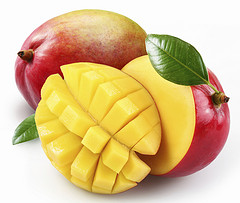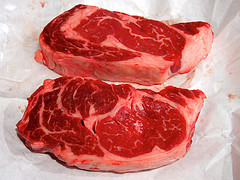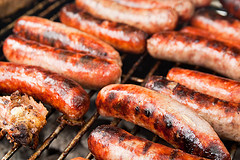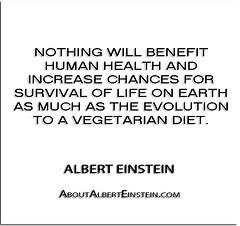Intermittent fasting, IIFYM, ketogenic diet, Atkins diet, carbohydrate cycling, Paleo diet, the Zone diet, and the list goes on and on. If you are a fitness enthusiast, you might have heard all these names of diets; if you are not interested, you might have heard none. However, I’m willing to bet that most of us have experience struggling, or will struggle when older, with diets in order to lose weight. So how would you design your own weight loss diet? Would you count your macro-nutrients?
 Weight loss is frustrating.
Weight loss is frustrating.
(Image: “las vegas weight loss” by Dave Williams)
Let me back up a little bit to talk about diets in the media. In the perspective of a newbie dieter, researching about diets can be extremely difficult. This is because weight loss represents perhaps the epitome of misinformation (false information spread unintentionally) and disinformation (false information spread intentionally) in the media. Not surprisingly, weight loss is a multi-billion dollar industry in the US. Thus, inevitably, there are countless scams revolving around this industry, which get in the way of our research. Hopefully, this short video will help you avoid some of those horrible diets.
Now let’s get to the meat of this discussion- macronutrients composition. There are three macronutrients in food: carbohydrates , fat , and protein . Each have different priorities, functions, reactions, and modes of storage in the body, which makes analyzing different diets quite challenging… or does it?
Apparently not, according to research, when it comes to weight loss alone. Researchers at Harvard Medical School have found that weight loss can be achieved no matter what composition of macronutrients you decide to implement in your diet, as long as there is a caloric deficit. These researchers assigned 811 overweight individuals to 4 diets which emphasize different macronutrients. After 2 years, they found out that all groups had clinically meaningful weight loss results. Therefore, it would be a waste of time to calculate macronutrients composition if our goal is to simply lose weight.
However, I cannot stress enough that macronutrients composition plays a crucial role if our goal is anything more specific than losing weight. For example, if we are trying to lose fat and gain muscles, we would need lots of protein. To gain a better understanding of how to diet to gain muscles, watch this video on how much protein you require in your diet.
Weight loss is often a stressful process, but now with macronutrients calculations out of the way, all you need to be concerned about is reducing caloric intake and/or increasing caloric output. This means that you can eat less of whatever you normally eat and/or exercise more frequently to lose weight. It’s that simple!
– Sean Nam






